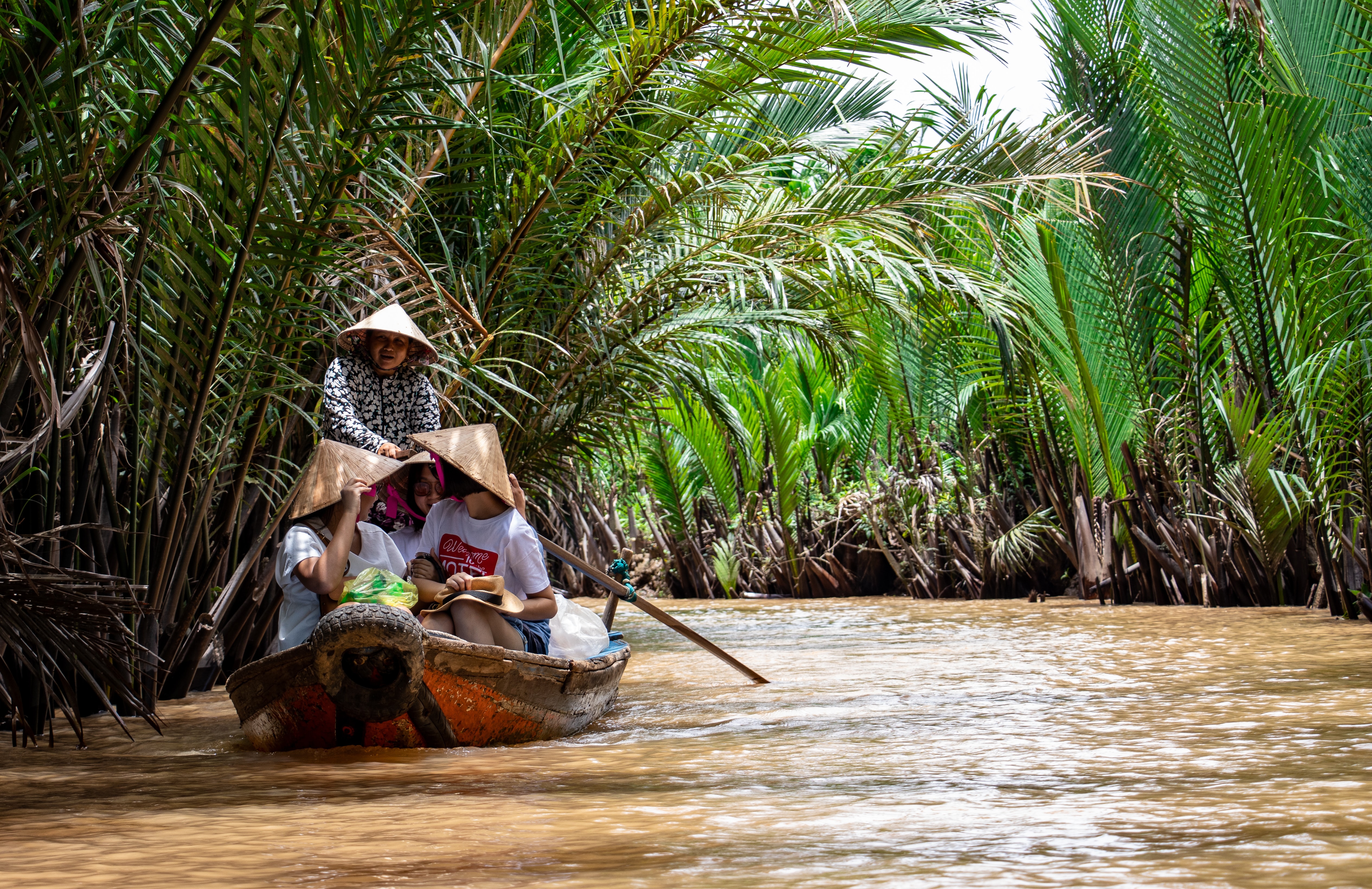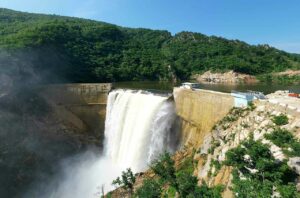On March 11, the Stimson Center and KAS-Multinational Development Policy Dialogue (MDPD) launched its Joint Working Group (JWG) 2.0 high-level meeting series on Insights from Transboundary River Commissions and Organizations. The JWG 2.0 meeting series will build on our last year’s joint working group meetings where field experts from the Himalayas, Central Asia, and the Euphrates-Tigris River basin, along with key representatives from the EU, came together to assess water security challenges in the aforementioned regions and explored how EU water diplomacy can facilitate greater basin-wide cooperation. In the same vein, the JWG 2.0 series is designed to bring attention to the workings of those who are directly involved with the effective management of transboundary waters in shared basins or shared aquifers.
Through JWG 2.0, KAS-MDPD and the Stimson Center envision creating a platform for peer-to-peer exchange, knowledge sharing, and greater dialogue between decision-makers, experts, and policy shapers from water-stressed regions on shared challenges of climate change, economic and political security, and humanitarian issues stemming from growing water scarcity.
The inaugural meeting on March 11 invited perspectives from two of the most eminent transboundary river commissions in Asia, the Mekong River Commission (MRC) and the Permanent Indus Commission (PIC) – Pakistan. In addition to the two commissions in focus, other notable discussants included transboundary river experts from the Euphrates-Tigris River basin and the Lake Chad basin along with representatives from the European External Action Service (EEAS), Slovenian Ministry of Foreign Affairs, Directorate-General for Environment of the European Commission, and the University of Pennsylvania.
Reflecting on the crucial role of the MRC in the governance and management of the Mekong River basin, the discussion shed light on the MRC’s more than 65 years of commendable experience in promoting regional cooperation. The MRC not only serves as the Mekong region’s knowledge hub but also as the treaty-based “Water Diplomacy Platform.” The discussion further expanded on MRC’s role in facilitating diplomatic initiatives by convening summits of political leaders and council of ministers, designing procedures for data sharing between riparian states, and ensuring wide stakeholder engagement on new projects and initiatives.
Nevertheless, even a well-structured and proactive organization such as the MRC has its share of challenges stemming from external competition, national interests of individual countries, and impacts of climate change.
Moving from Southeast Asia to South Asia, experts received a brief history of the Permanent Indus Commission and the long-standing Indus Waters Treaty (IWT) between India and Pakistan. The treaty, which is often revered for having stood the test of time and two wars between these South Asian heavyweights, was brokered by the World Bank in 1960 and lay down the rights and obligations of both countries concerning the use of the rivers in the Indus River system—Ravi, Sutlej, Bias, Chenab, Jhelum, and Indus. At the core, the PIC serves to establish and maintain cooperative arrangements for the implementation of IWT and promote bilateral cooperation vis-à-vis convening meetings at least once every year, conducting tours of inspections, and exchanging data and other information, as specified in the Treaty.
Beyond the two commissions in focus, the discussion also invited perspectives and ideas from experts on how transboundary river commissions in general can function better to support joint resource management and governance. On China and its involvement in the Mekong region as an upper riparian country, experts discussed how while China is accommodative of existing arrangements, a formal membership status would nevertheless enable greater data sharing between China and lower Mekong countries and pave the way for more transparency and extended cooperation. Experts from the Euphrates-Tigris River basin and Lake Chad basin also put across their perspectives from the experiences in their respective regions. For example, in the Lake Chad basin, there exists a strong emphasis on climate and conflict nexus and therefore access to coherent hydrological and climate data is instrumental to any policy decisions. Likewise, in the Euphrates-Tigris River basin, the political tensions often play into cooperative mechanisms over shared waters despite a strong commitment of envoys from riparian countries towards proposing joint action plans and implementing existing cooperative norms—reiterating the importance of political will and robust regional/basin-wide institutions and commissions.
While discussing the ideal modalities for information-sharing across basins, especially those in the more developing parts of the world, experts were in favor of mechanisms that allow access to decentralized information as and when required. Looking ahead, all experts underscored the need for more inter-regional and cross-basin dialogues to enable greater peer-to-peer connectivity, empower well-rounded and inclusive solutions to shared challenges, and advance knowledge and benefit-sharing practices.
In the future iterations of the JWG 2.0, KAS-MDPD and the Stimson Center will utilize the key takeaways from this inaugural session to design our next steps and identify how we can mobilize key stakeholders to devise concrete policy recommendations, learn from best practices, and invigorate existing means of transboundary river governance in water-scarce regions with adherence to respective treaties wherever applicable.




